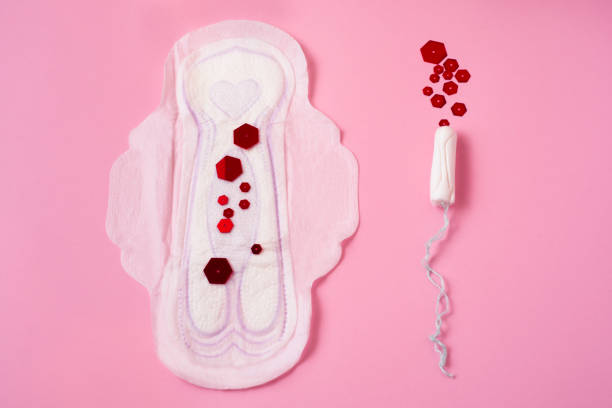Clots during menstrual periods: Possible causes
- Posted on 17/03/2025 14:36
- Film
- By evablessing@gmail.com

Extract from the article: Several factors can cause clots to break loose or clots to increase. Every month, the lining of the uterus thickens and fills with blood to hold an embryo or fertilized egg.
Several factors can cause clots to break loose or clots to increase. Every month, the lining of the uterus thickens and fills with blood to hold an embryo or fertilized egg. If fertilization does not occur, the levels of hormones delivered by the ovaries fall and cause the lining of the inner uterus to detach and cause blood to leak—these are called menses.
The body then releases anticoagulants to allow blood to drain. But when bleeding is profuse and blood flows rapidly, the process does not have time to act, and clots may form.
Iron deficiency
Heavy periods cause some iron to be lost. However, it is this mineral that enables the uterus to produce anticoagulant. In fact, less iron in the body leads to more clots being expelled. Regular analyzes will therefore be needed to monitor any shortfall and to compensate for it if necessary.
Hormonal imbalances
After delivery or shortly before menopause, menstrual blood clots commonly occur. This indicates that there are small hormonal disorders between progesterone and estrogen. Seek medical attention.
Spontaneous abortion
If blood clots on their own are not cause for concern, they should be monitored if trying to become pregnant and the clots are unusually colored. If so, unfortunately, it is likely to be an unintended abortion. The first reflex to have in this case is to consult a gynecologist.
Endometriosis
Having blood clots during menstruation is normal. If clots are accompanied by severe, even life-threatening pain, it can be a symptom of endometriosis, the silent illness that blights the lives of many women. It affects the reproductive organs, which have a very thick lining around the uterus and other organs.
Gynecological Diseases
Talking to a gynecologist about cases of blood clots, menstrual periods, and painful menses should be a reflex because they may be related to a gynecologic disorder such as pelvic inflammatory disease, cysts, or myomas.
William O.




